 W
WThe Albino Squirrel Preservation Society (ASPS) is an international collegiate organization dedicated to "fostering compassion and goodwill" toward albino squirrels. The ASPS has approximately 700 members in eight chapters across the United States, Canada and England.
 W
WThe American Bison Society (ABS) was founded in 1905 by pioneering conservationists and sportsmen including Ernest Harold Baynes, William T. Hornaday and Theodore Roosevelt to help save the bison from extinction and raise public awareness about the species.
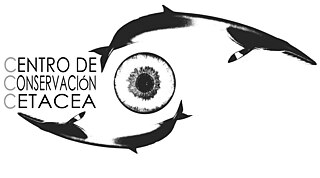 W
WThe Cetacean Conservation Center is a Chilean NGO dedicated to the conservation of cetaceans and other marine mammals that inhabit the coastal waters of Chile. The CCC also engages in public education and information campaigns at the national and regional level.
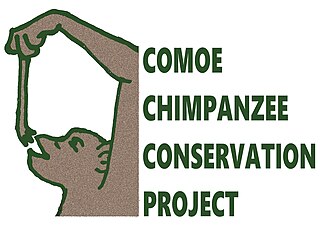 W
WThe Comoé Chimpanzee Conservation Project, CCCP, is a research and conservation project created in October 2014 by Juan Lapuente with the support of Prof. K. Eduard Linsenmair, from Würzburg University. Its main objectives are to study and help to preserve the population of chimpanzees resident in Comoé National Park and its neighboring areas, in Ivory Coast.
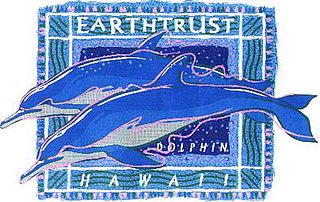 W
WEarthtrust (ET) is a non-governmental environmental organization based on the island of Oahu in Hawaii. Earthtrust was founded by in 1976 by Don White, a founding member and former international campaign director of Greenpeace International who has directed the organization since its inception. Focusing mostly on marine conservation, Earthtrust is responsible for the largest conservation victory in history by biomass due to its critical role in exposing, documenting, and ending large-scale high seas driftnetting. Earthtrust has been involved in many high-profile advocacy actions; notably the pioneering use of genetic analysis to demonstrate the prevalence of pirate whaling, the first scientific demonstration of self-awareness in a non-primate at its Delphis lab, creation of the first international seafood environmental accreditation standard, binding the world's largest tuna firm (StarKist) contractually to its tuna-acquisition criteria, and being the first to take charge of the environmental disaster left by the retreating Iraqi army in the Gulf War. The organization was designed to have a high funding efficiency and effectiveness, showcasing the methodologies of “effectivism” and “system steering” as alternatives to standard activism, by preferentially taking on what would otherwise be considered “impossible missions".
 W
WThe Gnaraloo Turtle Conservation Program (GTCP) is an environmental organisation based at the Gnaraloo pastoral station and run by the Gnaraloo Wilderness Foundation, a not-for-profit organisation. The aim of the GTCP is to identify, monitor and protect the nesting beaches of loggerhead sea turtles found at two locations on the Gnaraloo coastline. These two rookeries contribute to the South-East Indian Ocean subpopulation of loggerhead turtles, with other major nesting sites for this sub-population at Dirk Hartog island and Exmouth. This is within the southern boundaries of the Ningaloo Coast marine area, a UNESCO World Heritage Site.
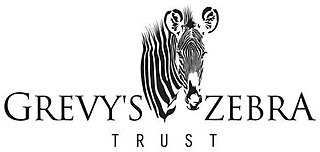 W
WThe Grévy's Zebra Trust GZT was founded in 2007 for the protection of the Grévy's Zebras and their habitat. The Conservancy works to engage and incorporate local communities in protecting Grévy's Zebra in Ethiopia and Kenya. GZT uses scouts to collect scientific data, provide security, surveillance, and run education programs. Currently the Grévy's Zebras global population is today about 2,500 down from an estimated 15,000 in the 1970s.
 W
WThe International Anti-Poaching Foundation (IAPF) is a non-profit organisation registered in Australia, predominately operating on the African continent. The group initially created a structured military-like approach to conservation, employing tactics and technology generally reserved for the modern-day battlefield, and has since moved to a community oriented approach. This has included the training of local women as rangers.
 W
WKuzeyDoğa is a Turkish conservation non-governmental organization operating primarily in the far eastern section of the country, with a focal area ranging from the shores of the Black Sea to Mount Ağrı (Ararat).
 W
WThe Wildlife Conservation Society (WCS) is a non-governmental organization headquartered at the Bronx Zoo in New York City, that aims to conserve the world's largest wild places in 14 priority regions. Founded in 1895 as the New York Zoological Society (NYZS), the organization is led by President and CEO Cristián Samper. WCS manages four New York City wildlife parks in addition to the Bronx Zoo: the Central Park Zoo, New York Aquarium, Prospect Park Zoo and Queens Zoo. Together these parks receive 4 million visitors per year. All of the New York City facilities are accredited by the Association of Zoos and Aquariums (AZA).
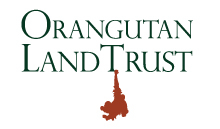 W
WThe Orangutan Land Trust is a UK charity with the objective of providing sustainable solutions for the long-term survival of the orangutan in the wild by ensuring safe areas of forest for their continued existence. The organizations President and co-founder, Lone Drøscher Nielsen is a prominent wildlife conservationist.
 W
WPainted Dog Conservation was founded in 1992 by Dr Greg Rasmussen, for the protection of the painted dogs and their habitat. Painted Dog Conservation works to engage and incorporate local communities in protecting painted dogs in Zimbabwe. The painted dog, or African wild dog, was once common in Africa with estimates of over half a million spread among 39 countries. Current estimates put their numbers at about 3,000 only found in Tanzania, Zambia, Mozambique, Zimbabwe, Botswana and South Africa. Since PDC's creation, Zimbabwe's wild dog population has increased from 400 to 700 individuals. Painted Dog Conservation is partnered with the Wildlife Conservation Network.
 W
WThe Proyecto Tití was founded in 1985, to provide information to assist in conservation of the cottontop tamarin and their habitat in the tropical forests of Colombia. Proyecto Tití's programs combine field research, education and community programs. The cotton-top tamarin, is one of the most endangered primates in the world and is found only in North-Western Colombia.
 W
WThe Swiss Cetacean Society is a Swiss nonprofit organization devoted to the preservation of marine mammals in their natural habitat. Founded in 1997, its headquarters are in Lausanne in Switzerland.
 W
WThe Ugly Animal Preservation Society is a comedy night with a conservation twist founded in Great Britain by biologist, writer and TV presenter Simon Watt to raise the profile of animal species which lack traditional aesthetically appealing characteristics. In part it is based on the belief that conservation of charismatic megafauna like pandas attract disproportionate amounts of funding that could be better spent elsewhere. The organisation aims to protect less attractive animals such as the proboscis monkey which also face threats.
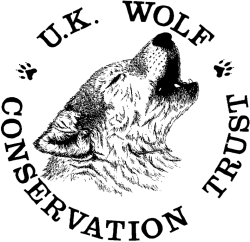 W
WThe UK Wolf Conservation Trust is a non-profit organisation based in Berkshire, England. Its aims are to dispel the myths and misconceptions surrounding wolves, and to support wolves living in the wild elsewhere in Europe. It is currently home to ten wolves: Nuka, Tala, Tundra, Mai, Motomo, Mosi, Torak, Massak, Pukak and Sikko.
 W
WWildlife Alliance is an international non-profit wildlife and forest conservation organization with current programs and partnerships in Cambodia. It is headquartered in New York City, with offices in Phnom Penh. The logo of the organization is the Asian elephant, an emblematic species of Southeast Asia and the namesake for the organization's programs in the Southwest Elephant Corridor of the Cardamom Mountains of Cambodia. Suwanna Gauntlett is the Founder and CEO of Wildlife Alliance and one of the original founders of WildAid. The organization is governed by a Board of Directors, and a International Advisory Board provides guidance on strategy, fundraising, and outreach.
 W
WThe Wildlife Conservation Society (WCS) is a non-governmental organization headquartered at the Bronx Zoo in New York City, that aims to conserve the world's largest wild places in 14 priority regions. Founded in 1895 as the New York Zoological Society (NYZS), the organization is led by President and CEO Cristián Samper. WCS manages four New York City wildlife parks in addition to the Bronx Zoo: the Central Park Zoo, New York Aquarium, Prospect Park Zoo and Queens Zoo. Together these parks receive 4 million visitors per year. All of the New York City facilities are accredited by the Association of Zoos and Aquariums (AZA).
 W
WThe Xerces Society is a non-profit environmental organization that focuses on the conservation of invertebrates considered to be essential to biological diversity and ecosystem health. The name is in honor of the extinct California butterfly, the Xerces blue.